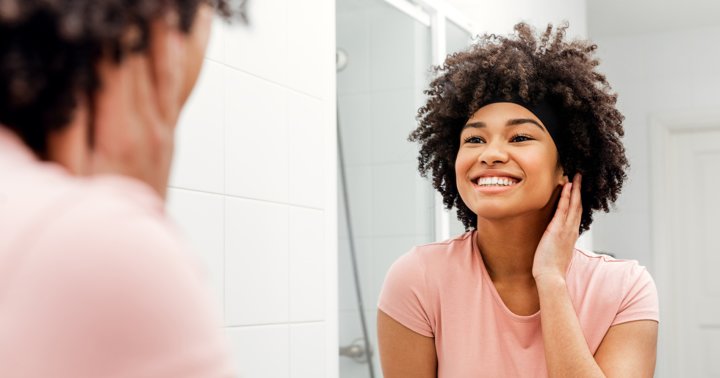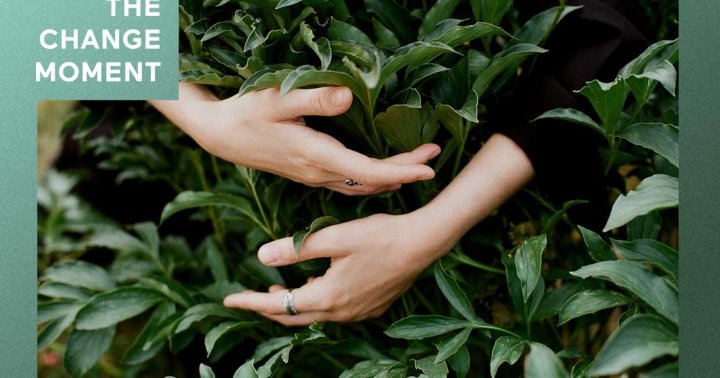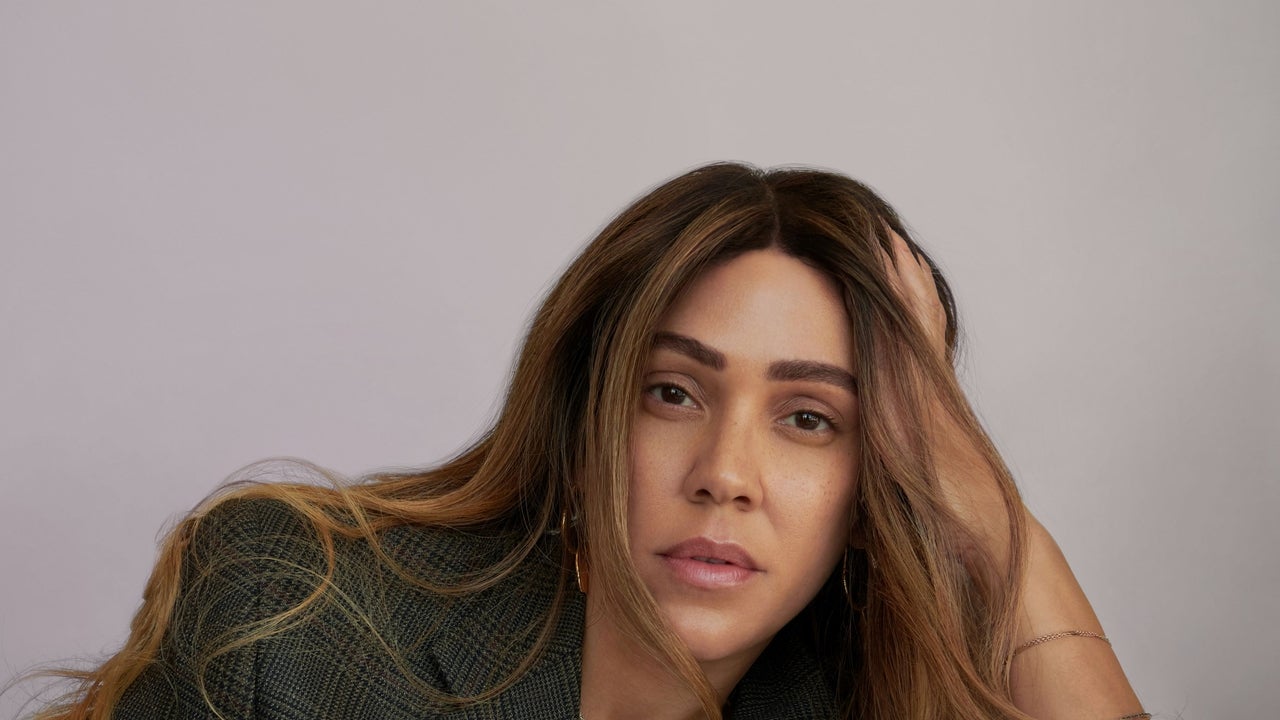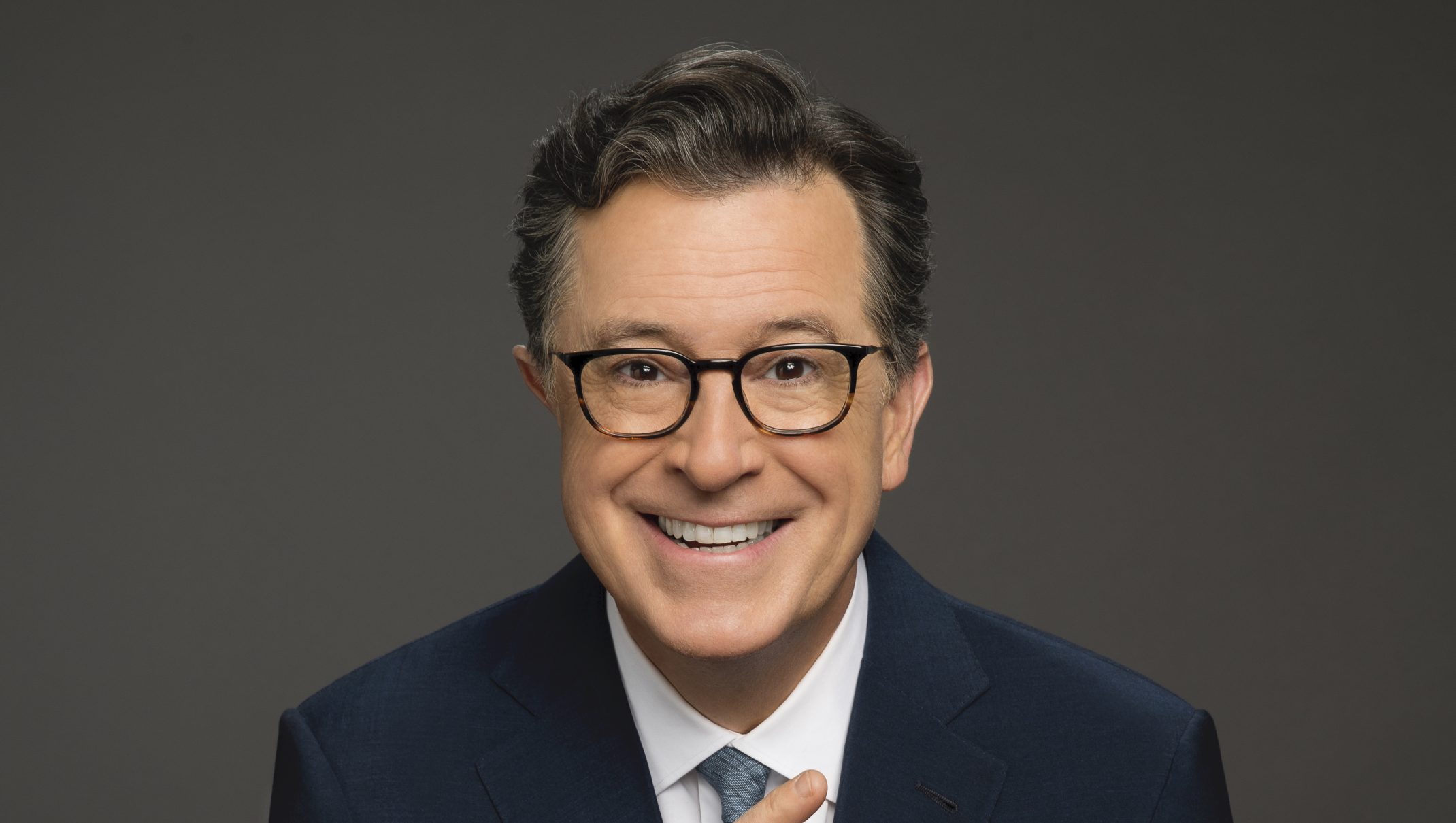Embracing Innovation: 3 Exciting Beauty Trends Redefining The Industry
Looking ahead isn’t just about trend chasing, it’s about predicting the next wave of perception shifts. Here's what we think for the future.
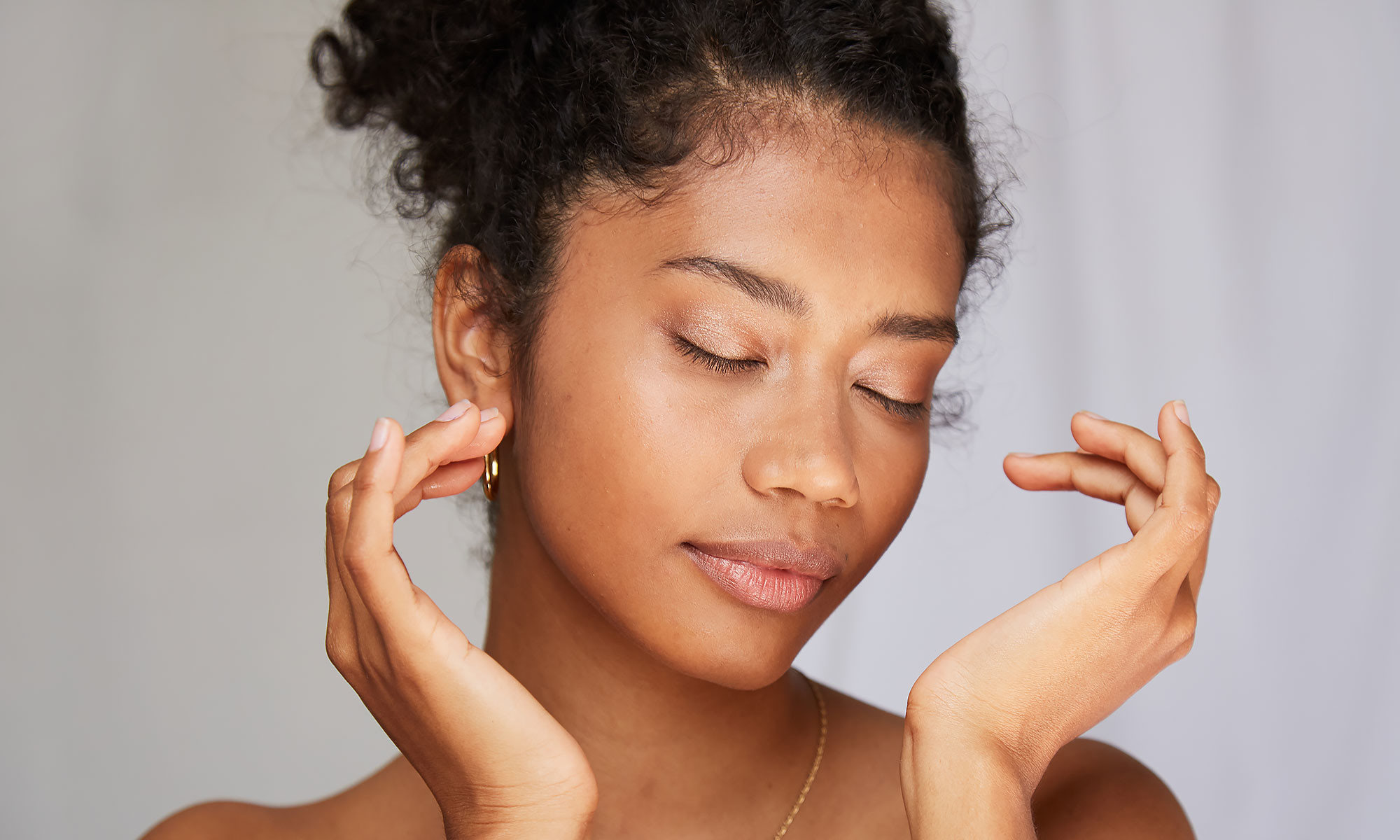

mbg Beauty Director
mbg Beauty Director
Alexandra Engler is the beauty director at mindbodygreen and host of the beauty podcast Clean Beauty School. Previously, she's held beauty roles at Harper's Bazaar, Marie Claire, SELF, and Cosmopolitan; her byline has appeared in Esquire, Sports Illustrated, and Allure.com.
Image by ohlamour-studio / Stocksy July 02, 2024 We carefully vet all products and services featured on mindbodygreen using our Our selections are never influenced by the commissions earned from our links. With the revolving door of microtrends and the onslaught of social media “discoveries,” making sense of the beauty market is no easy task. Even the most beauty enthused follower can get exhausted keeping up with the constant aesthetic changes and product launches. Looking ahead isn’t just about trend chasing, it’s about predicting the next wave of perception shifts based on what’s happening in the world around us. And when we look at the big picture beauty market, generational insights, and even our own audience intel, this is what we see on the horizon. 
Skin longevity isn't just for older generations
There have been countless think-pieces and trend reports on Gen Alpha’s obsession with skin care—so I won’t bore you with another one. The kids like Sephora and Ulta, we get it! What I’m more interested in is what this surge of interest means for the beauty market going forward.
A recent survey of Gen Alpha Americans found astounding insights into the minds of these young, ambitious beauty folk—and one thing is clear: Aging is ever present on their minds, but it’s not just about the skin.
According to Gen Alpha responders, the worst effects of aging are: Physical limitations and lack of strength (42% say this was their biggest concern), memory loss (38%), wrinkles (31%), and being perceived as less attractive to others (20%).
So, while appearance is certainly a concern for the young generation, mobility and cognition are the most pressing.
To care for themselves as they age, the generation is turning to the principles of longevity. According to the survey, they are most interested in these steps: Eating healthy and/or exercising (64%), taking supplements (43%), and prioritizing mental health/reducing stress (37%).
But they also love skin care, as has been previously discussed: One out of three respondents said they had a “multi step skin care routine to combat aging,” which was more than their adult counterparts.
And finally, they’re willing to put money behind it: 51% said they would spend $100 per month, which is more than double the amount of millennials who said the same thing. (Take this with a grain of salt, as the different generations are in much different stages in their lives and probably have a much different relationship with money. If it’s even their own money they're spending.)
As Gen Alpha starts to grow up, brands (and media companies) should be thinking about the aging conversation holistically—not just about what “anti-aging” topical ingredients to use, but about whole body health and longevity.
In our newsletter, The Long Game, some of our best-performing topics are:
I also suspect these survey findings means we’re going to see a lot of young folks learn a bit too early the importance of the skin barrier. With preteens using potent acids and retinol well before it’s needed for their delicate skin, there’ll likely be a rise in reports of sensitivity and irritation.
"The most common cause [of sensitive skin and a damaged barrier] is over-stripping the skin of its natural oils," board-certified dermatologist and assistant clinical professor of dermatology at Mt. Sinai School of Medicine Jeannette Graf, M.D., told us about the causes behind a compromised barrier. "This can be done by washing your face too much and over-exfoliating the skin."
As Gen Alpha continues to grow up, the market may shift further to address barrier damage and barrier strength. While barrier products have been popular for a while now, the market share and interest shows no sign of declining. Interest grew by 35% last year, with over 9K searches a month.
Brands can meet those needs by focusing more attention on barrier repair as a means of healthy aging—rather than just talking about “anti-aging” ingredients.
Healthy bronzing as a way to combat bad sun care habits
Spending time in the sun is vital for many reasons, including mental and physical health. However, it’s very important that folks are responsible while doing so. Recent surveys show that Millennials, Gen-Z, and younger generations have adopted some troubling sun care habits and opinions.
According to a survey from the American Academy of Dermatology, Americans aged 18-25 have shown an increased interest in tanning—and a disinterest in applying sunscreen.
Some of the more shocking stats:
Providing informed, balanced, and holistic sun care advice is something we’re very passionate about at mindbodygreen. Being smart about your time in the sun is ultimately important for skin longevity and overall longevity.
We do this across channels, including on our Clean Beauty School podcast, on TikTok, and in our newsletter, The Long Game. In fact, in a recent newsletter, advice on sun care was the most trafficked section for the entire month of May. (Clearly, TLG readers are interested in learning how you can look younger for longer.)
It’s not all bad: Innovative makeup to the rescue.
Interestingly, we’ve also seen this interest in tanning come with another beauty trend—his one, however, we get behind. Bronzing drops, tinted serums, and glow-enhancing sunscreens have exploded in popularity. These can offer the glowing sun-kissed aesthetic, sans damage.
[A note about vitamin D]
Vitamin D—a vitamin and hormone necessary for several functions in the body—is often called "the sunshine vitamin," as vitamin D3 is synthesized in our skin via UVB sunlight exposure. Most Americans struggle with deficiency or insufficiency, so figuring out how to improve vitamin D levels is a worthwhile conversation. Getting enough vitamin D from the sun is challenging and comes with other risks—in addition the body’s ability to synthesize vitamin D through the skin decreases with age. That’s why vitamin D supplements tend to be the best bet.
Mitochondrial health & ATP production takes center stage
Skin care tools, such as LED masks, cold lasers, and microcurrent wands, have become the hot ticket item over the last several years. In fact, it’s some of our best performing beauty content on the website. And the market sees the same trend: The global LED face mask market is expected to grow by 11.9% by 2030.
Clearly, folks are interested in how these tools can help keep skin looking healthier for longer.
While these devices work in different ways, one thing they have in common is that they support mitochondrial health and boost ATP production. And these benefits are at the core of what makes them such powerful regenerative tools.
The mitochondria exist in almost every cell in our body, where they produce energy. The chemical energy created by the mitochondria is stored in the ATP, which is your body's energy currency. ATP is transported and transferred throughout the body, where it powers up various functions. Yes, this includes cells that make up the skin as well.
Essentially: Healthy mitochondrial function is the basis for healthy skin as we know it.
But up until recently, the importance of the mitochondria for skin health wasn’t a topic widely discussed or understood.
The longevity conversation seems to be changing that. As folks become more educated about the body’s regenerative properties and how to optimize them, we’ll see the beauty industry begin to embrace talking about the role of the mitochondria in skin health.
Not only that, but because of the growing popularity of regenerative skin care tools (like LED masks and microcurrents), more people will be familiar with their benefits.
I suspect we’ll see topical skin care brands start to harness ingredients that support mitochondrial health.
Particularly innovative companies have already started taking that approach. L'Oréal-backed Timeline Nutrition & Skin Care (the beauty conglomerate invested in the company earlier this year) uses a proprietary postbiotic called Urolithin A, which stimulates cellular cleanup and enhances mitochondrial health. Clinical research has found that it can even slow the aging process in the skin and protect the skin from both internal and external factors of aging.
A few other topics we’re excited about…
Keep an eye out for the above trends—and in the meantime, check out topics we’re actively covering already.

 JimMin
JimMin 







